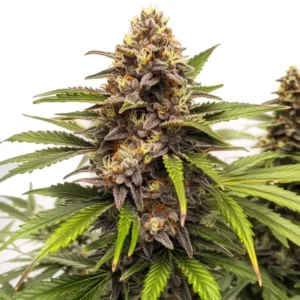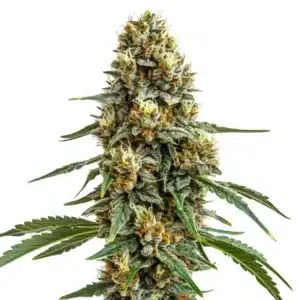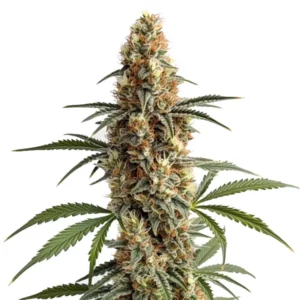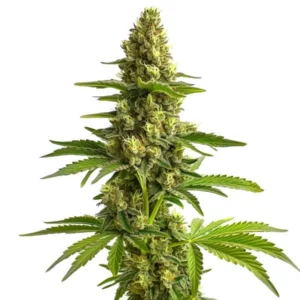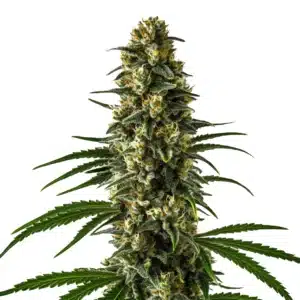
Michigan Clones: Your Guide to a Successful Grow
Why Buy Michigan Clones Online for Your Grow
If you’re looking to boost your cannabis grow in Michigan, purchasing clones online offers a range of benefits that make it an ideal choice. Michigan’s unique climate, along with the convenience and variety offered by online clone suppliers, provides growers with the tools they need for a successful harvest.
Convenience and Quality at Your Fingertips
Shopping for cannabis clones online saves you the hassle of scouring local dispensaries for the right strains. The Michigan cannabis market is diverse, and while local shops may carry a few popular varieties, they often lack the depth and variety that online suppliers can offer. Online clone sellers bring a curated selection of strains to your doorstep, allowing you to select the best clones tailored to your growing needs.
Recommended Strains
Runtz
|
|
THC | 19% - 22% (Medium) |
|
|
Type | Feminized |
|
|
Yield | Medium |
|
|
Phenotype | 50% Indica / 50% Sativa |
Runtz Autoflower
|
|
THC | 18% - 22% (Medium) |
|
|
Type | Autoflowering |
|
|
Yield | High |
|
|
Phenotype | 55% Indica / 45% Sativa |
In addition, online suppliers often work directly with breeders to provide verified, high-quality clones. This level of quality assurance ensures that you’re getting healthy, pest-free clones with a known genetic background. The ease of browsing strains online, coupled with discreet delivery to your door, makes online purchasing the preferred method for many Michigan growers.
Access to a Wide Variety of Strains
The variety available through online suppliers is unmatched by local stores. From potent indicas to uplifting sativas, buying Michigan clones online opens up a world of strain possibilities. Whether you’re looking for a fast-flowering plant to beat Michigan’s shorter summer season or a high-CBD strain for medicinal use, online suppliers offer a broader selection than what you’d typically find in local dispensaries.
Benefits of Purchasing Online
Online shopping for clones is not just about variety; it’s about optimizing your grow with the highest quality plants tailored to Michigan’s climate and your personal growing style.
Discreet Delivery to Your Doorstep
When you buy clones online in Michigan, you enjoy the convenience of having your clones delivered directly to your door in discreet packaging. Reputable suppliers ensure that their packaging protects the clones during transit, preserving their health and viability. This means you can start your grow without the stress of sourcing quality clones in person.
Verified Genetics for Consistent Harvests
Knowing the genetics of your clones is crucial for a successful grow. When you buy from trusted online suppliers, you receive clones that have been carefully selected and verified for their genetic integrity. This means you can expect consistent results, from growth patterns to potency and flavor. This consistency is key, especially in Michigan, where the climate can be unpredictable and a stable genetic profile can make all the difference.
Promos & Deals
Tips for Choosing the Right Clones for Michigan’s Climate
Michigan’s climate presents unique challenges for cannabis cultivation, especially for those growing outdoors. Choosing the right clones for Michigan’s conditions can set the foundation for a successful grow.

Ideal Strains for Outdoor Growing in Michigan
Michigan’s outdoor growing season is relatively short, with warm summer days followed by cooler temperatures in the fall. For outdoor cultivation, select clones known for their resilience and fast flowering times. Look for strains that can withstand Michigan’s fluctuating weather patterns, particularly those resistant to mold and mildew, as high humidity can be an issue during the summer months.
Selecting Clones Suited for Indoor Cultivation
For indoor growers in Michigan, the sky’s the limit when it comes to selecting clones. With the ability to control the environment, you can choose strains that require specific temperature and humidity conditions. Clones with longer flowering times, like certain sativas, are well-suited for indoor grows, where you can mimic the ideal environment year-round.
Indica, Sativa, or Hybrid: What Works Best for Michigan?
The choice between indica, sativa, and hybrid clones depends on your growing setup and desired effects. Indica strains tend to be more compact and flower faster, making them ideal for Michigan’s shorter outdoor season. Sativas, on the other hand, often require longer to flower, so they are better suited for indoor growing where you can control the light cycle. Hybrids offer a balance, with many varieties bred to be more adaptable to different growing conditions.
Where to Buy Quality Michigan Clones Online
Finding a reputable supplier is key to purchasing healthy, high-yielding clones. Here’s how to find the best online sources and ensure your clones arrive in peak condition.
Top-Rated Online Clone Suppliers in Michigan
When choosing an online clone supplier, look for companies with strong reputations in the Michigan cannabis community. The best suppliers offer a wide range of strains suited for Michigan’s growing conditions and back their products with health guarantees. Check customer reviews and testimonials to gauge the quality and reliability of the clones they provide.
Tips for Choosing a Trusted Supplier
A trusted clone supplier will be transparent about their growing practices, genetic verification, and health checks. They should provide detailed information about each clone, including its growth characteristics, flowering time, and ideal growing conditions. Look for suppliers that offer customer support and guidance on caring for the clones once they arrive.
Top Cannabis Clones for Michigan Growing
For Michigan growers, choosing strains that thrive in the state’s unique climate is crucial. Here are some popular strains that are well-suited for Michigan’s growing conditions:
Platinum OG: This indica strain is well-suited for Michigan’s outdoor growing season due to its mold resistance and sturdy growth. Platinum OG produces dense, frosty buds and offers relaxing effects, making it a favorite among growers looking for a reliable and potent strain.
Blue Runtz: Known for its vibrant blue hues and sweet flavor profile, Blue Runtz thrives in both indoor and outdoor environments. Its resilience to cooler temperatures and quick flowering time make it an ideal choice for Michigan’s shorter growing season. This strain offers a balanced high that combines relaxation with euphoria.
Double Runtz: For those seeking a hybrid that performs well indoors, Double Runtz is an excellent option. It features a compact structure and high resin production, making it a great choice for growers in Michigan who want a strain that produces potent, sweet-tasting buds. Its balanced effects and versatility make it perfect for a range of growing environments.
Caring for Your Michigan Clones: Tips for Success
Successfully growing cannabis clones in Michigan requires understanding the local climate and tailoring your care to ensure optimal growth and yields.
Adjusting to Michigan’s Outdoor Season
For outdoor growers in Michigan, timing is everything. Plant your clones after the last frost, usually in late May or early June. This allows the clones to establish themselves during the warm summer months before flowering in the fall. Choose a sunny location with well-drained soil, and consider using containers if the ground is too wet or compacted.
Keep an eye on Michigan’s unpredictable weather patterns. In periods of heavy rain, protect your plants by providing a temporary cover to prevent waterlogging. As fall approaches and temperatures drop, consider using greenhouses or protective coverings to extend the growing season and shield your plants from early frosts.
Managing Humidity and Temperature Indoors
Indoor growers in Michigan have the advantage of controlling the environment. Keep the temperature between 70-80°F (21-27°C) during the vegetative phase and slightly cooler during flowering. Humidity levels should be around 60% during the vegetative phase, reducing to 40-50% in the flowering stage to prevent mold and mildew.
Proper ventilation is key to maintaining a healthy indoor grow. Use fans to circulate air and prevent the buildup of humidity, which can be a common issue in Michigan’s climate. Additionally, investing in a dehumidifier can help keep your grow room within the desired humidity range.
Feeding and Watering Clones in Michigan
Cannabis clones in Michigan benefit from a balanced feeding schedule. During the vegetative phase, use a nutrient solution rich in nitrogen to support leafy growth. As the plants transition to flowering, increase phosphorus and potassium to enhance bud development.
Michigan’s outdoor soil can vary in nutrient content, so it’s often beneficial to supplement with compost or organic fertilizers. For indoor growers, consider using a well-draining potting mix and a reliable nutrient regimen tailored to your chosen strain’s needs.
When watering, avoid over-saturating the soil, especially in Michigan’s humid summer conditions. Allow the top inch of soil to dry out between waterings to prevent root rot and promote healthy root development.

Maximizing Your Success
Growing cannabis in Michigan can be incredibly rewarding if you take the right steps to maximize your plants’ health and yields. Whether you’re growing indoors or outdoors, a few techniques can make a significant difference in the quality and quantity of your harvest.
Pruning and Training for Better Light Exposure
Pruning is essential for creating an open structure in your cannabis clones, allowing light to penetrate evenly across all parts of the plant. In Michigan’s outdoor environments, pruning the lower branches and leaves encourages the plant to focus its energy on the upper canopy, where buds will develop. For indoor growers, pruning helps manage plant height and prevents overcrowding, ensuring optimal airflow and light distribution.
Training methods like Low-Stress Training (LST) and topping can be especially useful. By bending and securing branches horizontally, LST maximizes light exposure, promoting more bud sites and enhancing overall yield. Topping, on the other hand, involves cutting the main stem to encourage a bushier growth pattern. Strains like Gelato 33 respond well to these training methods, allowing you to shape the plants to fit your growing space.
Monitoring Light and Temperature for Clones
For indoor grows, controlling the light cycle is key. During the vegetative phase, provide your clones with 18 hours of light and 6 hours of darkness each day. When you’re ready to transition to flowering, switch to a 12/12 light cycle. Use high-quality LED or HID lights to ensure your clones receive the full spectrum of light they need for robust growth.
Temperature control is equally important. Michigan’s outdoor growers should monitor weather conditions closely, as sudden cold snaps can stress the plants. If nighttime temperatures drop too low, consider using row covers or portable heaters to keep your plants warm. Indoor growers should aim to maintain a stable temperature range of 70-80°F (21-27°C) for the vegetative phase and slightly cooler during flowering.
Troubleshooting Common Issues with Michigan Clones
Even with the best care, cannabis clones in Michigan can encounter problems due to the state’s fluctuating climate. Knowing how to identify and address these issues early on can save your harvest.
Identifying and Addressing Nutrient Deficiencies
Outdoor soils in Michigan can sometimes lack essential nutrients like nitrogen, phosphorus, and potassium. Keep an eye out for signs of deficiencies, such as yellowing leaves (nitrogen deficiency) or purple stems (phosphorus deficiency). If you notice these symptoms, adjust your feeding schedule by incorporating the missing nutrients. For organic growers, compost tea and fish emulsion are excellent supplements to boost nutrient content.
Indoor growers should regularly monitor the pH of their growing medium. Cannabis absorbs nutrients most efficiently in a pH range of 6.0-6.5 for soil and 5.5-6.0 for hydroponic systems. Use a pH meter to test your water and nutrient solution, adjusting as needed to maintain the ideal pH level.
Preventing Mold and Pests in Michigan’s Climate
Michigan’s humid summer months can create a perfect environment for mold and mildew to develop on your plants. To prevent these issues, ensure proper spacing between plants to promote airflow and reduce humidity levels. Outdoor growers can use row covers to protect the plants from excessive rain and morning dew, while indoor growers should utilize fans and dehumidifiers to keep the air circulating and moisture levels in check.
Pests such as aphids and spider mites can also be a concern. Inspect your plants regularly for signs of infestation, including discolored spots on leaves or the presence of tiny insects. For outdoor growers, companion planting with herbs like basil or mint can help deter pests naturally. Indoor growers can use organic insecticidal soap or neem oil to address minor pest issues without harming the plants.
Steps for a Bountiful Michigan Harvest
Growing cannabis clones in Michigan can be a fruitful endeavor when you select the right strains, care for your plants diligently, and adjust your growing practices to Michigan’s unique climate. By purchasing high-quality clones online, you set yourself up for success from the start, giving your garden the genetic boost it needs to thrive.
For both indoor and outdoor growers, understanding the seasonal changes, monitoring environmental conditions, and responding to the needs of your plants is key to maximizing yields. Whether you prefer indica, sativa, or hybrid strains, following these guidelines will ensure that your cannabis clones reach their full potential, resulting in a harvest that reflects your hard work and dedication.

Frequently Asked Questions about Michigan Clones
When is the best time to plant cannabis clones outdoors in Michigan?
The best time to plant cannabis clones outdoors in Michigan is after the last frost, usually in late May or early June. This timing ensures the soil is warm enough for the clones to establish their roots and grow vigorously. Planting during this period allows them to make the most of the summer sun before transitioning to flowering as the days shorten in late summer.
What strains are best suited for Michigan’s outdoor climate?
Strains that flower quickly and are resilient to temperature fluctuations work best for Michigan’s outdoor climate. Indica-dominant hybrids like Gruntz and Illemonati are popular choices due to their compact structure and shorter flowering times. These strains are more resistant to humidity and mold, making them ideal for Michigan’s variable weather patterns.
How do I protect my outdoor clones from Michigan’s unpredictable weather?
Protecting your clones from Michigan’s unpredictable weather involves a few key strategies. Use row covers or portable greenhouses to shield your plants from heavy rains and early fall frosts. Planting in containers allows you to move the clones indoors during extreme weather. Additionally, adding a layer of mulch around the base of your plants helps retain soil moisture and regulate temperature.
How often should I water cannabis clones in Michigan’s climate?
Outdoor clones in Michigan typically need to be watered every 2-3 days, depending on the weather and soil type. During hot summer months, they may require more frequent watering. However, avoid overwatering, especially in Michigan’s humid conditions, as this can lead to root rot. For indoor grows, water when the top inch of soil feels dry to the touch, and ensure proper drainage to prevent waterlogging.
Can I grow cannabis clones indoors year-round in Michigan?
Yes, you can grow cannabis clones indoors year-round in Michigan. Indoor growing allows you to control temperature, light, and humidity, creating an ideal environment for your clones regardless of outdoor conditions. Invest in quality LED grow lights and climate control equipment to maintain consistent conditions throughout the growing cycle, maximizing your harvests.
Where can I buy high-quality cannabis clones online in Michigan?
You can find high-quality cannabis clones from reputable online suppliers that cater to the Michigan market. Look for sellers with strong customer reviews, verified genetics, and a variety of strains suited for Michigan’s climate. Trusted suppliers provide detailed strain information and offer guidance on care and maintenance, ensuring you receive healthy clones ready for transplanting.
How do I acclimate my clones to Michigan’s outdoor environment?
Before planting your clones outdoors, harden them off by gradually exposing them to direct sunlight over 7-10 days. Start by placing the clones in a shaded area for a few hours and gradually increase their exposure to full sun. This process reduces transplant shock and helps the clones adapt to Michigan’s outdoor conditions, including temperature fluctuations and wind.
What nutrients do cannabis clones need in Michigan’s soil?
Michigan’s soil can vary, but it often benefits from additional organic matter to improve nutrient content. During the vegetative phase, provide a nutrient-rich solution high in nitrogen to support leafy growth. As the clones transition to flowering, switch to a formula higher in phosphorus and potassium. Adding compost or organic fertilizers like worm castings can boost soil fertility, promoting healthy clone development.
Can I grow clones in Michigan without using pesticides?
Yes, you can grow clones in Michigan without using pesticides by implementing natural pest control methods. For outdoor grows, companion planting with herbs like basil and mint helps repel pests. Indoors, maintain proper humidity levels and use organic insecticidal soap or neem oil to control pests. Regularly inspect your plants for signs of infestation and remove affected leaves promptly to prevent the spread of pests.



